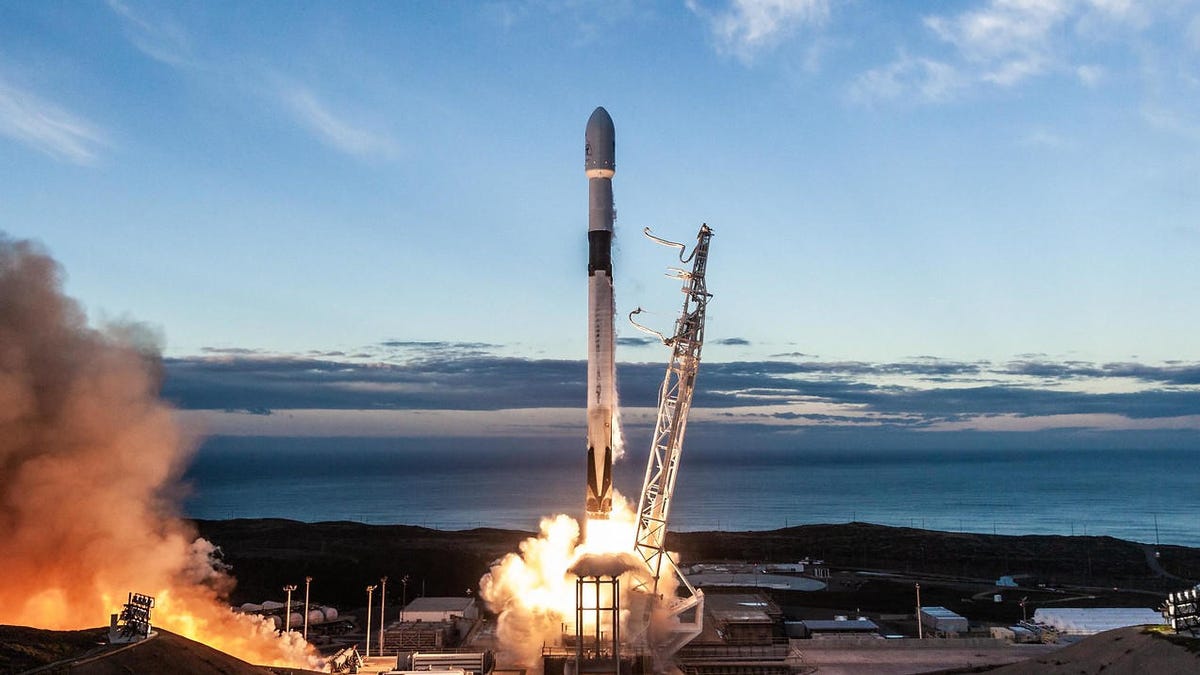Iridium Is Offering Its Own Smartphone-to-Satellite Service to Companies
Fresh from its severed Qualcomm partnership, the satellite network company proposes its own solution to send text messages over low Earth orbit.

An Iridium satellite is launched using a SpaceX Falcon 9 rocket.
The satellite-to-phone trend we predicted last year didn't take off as expected, and one of the casualties was satellite network owner Iridium's severed partnership with chipmaker Qualcomm. Now on its own, Iridium has launched its own service device makers can use to let you send text messages through satellites.
Project Stardust, as Iridium's service is called, will offer the company's constellation of satellites to device manufacturers and carriers to provide connectivity straight to phones, cars, mobile networks and internet of things devices. Unlike Iridium's previously planned partnership with Qualcomm, which was a proprietary service, Project Stardust will comply with the 3GPP 5G standards for non-terrestrial networks.
Read more: Satellite Messaging: The 2023 Phones Trend That Wasn't (Yet)
"The industry is moving quickly towards a more standards-based approach, and after surveying the field, we found that we're the best positioned to lead the way using our own network, particularly given our true global coverage," Iridium CEO Matt Desch said in a press release.
Iridium's constellation of satellites operate in low Earth orbit, or LEO, which are a shorter distance away from Earth's surface than satellites in geostationary orbit and thus take less time to relay messages to phones. Globalstar, the network Apple uses for its Emergency SOS service, also has LEO satellites, but its constellation coverage is limited to certain continents, while Iridium says its satellites have global reach.
A model of Iridium's global satellite coverage.
Iridium won't offer this service directly to consumers; rather, it will partner with companies so that they can develop their own proprietary solutions. Initially, this service will enable 5G messaging and SOS emergency capabilities for phones, tablets, cars and similar consumer applications, according to the press release. Project Stardust will focus on data messaging in general, and voice isn't an initial focus, but could be added later, Iridium CEO Mike Desch told CNET over email -- but the company already serves voice on its network well and has discrete devices people use to do so.
Iridium launched its second generation of satellites in 2019, and will update their software to prepare them for Project Stardust (as well as upgrading the company's ground systems to match). Those developments will take time, and the satellite network owner plans to begin testing the project in 2025 with service expected to start in 2026.
Correction, 11:10 a.m. PT: This story originally misstated the age of Iridium's satellite network. Its current generation of satellites were launched in 2019.

